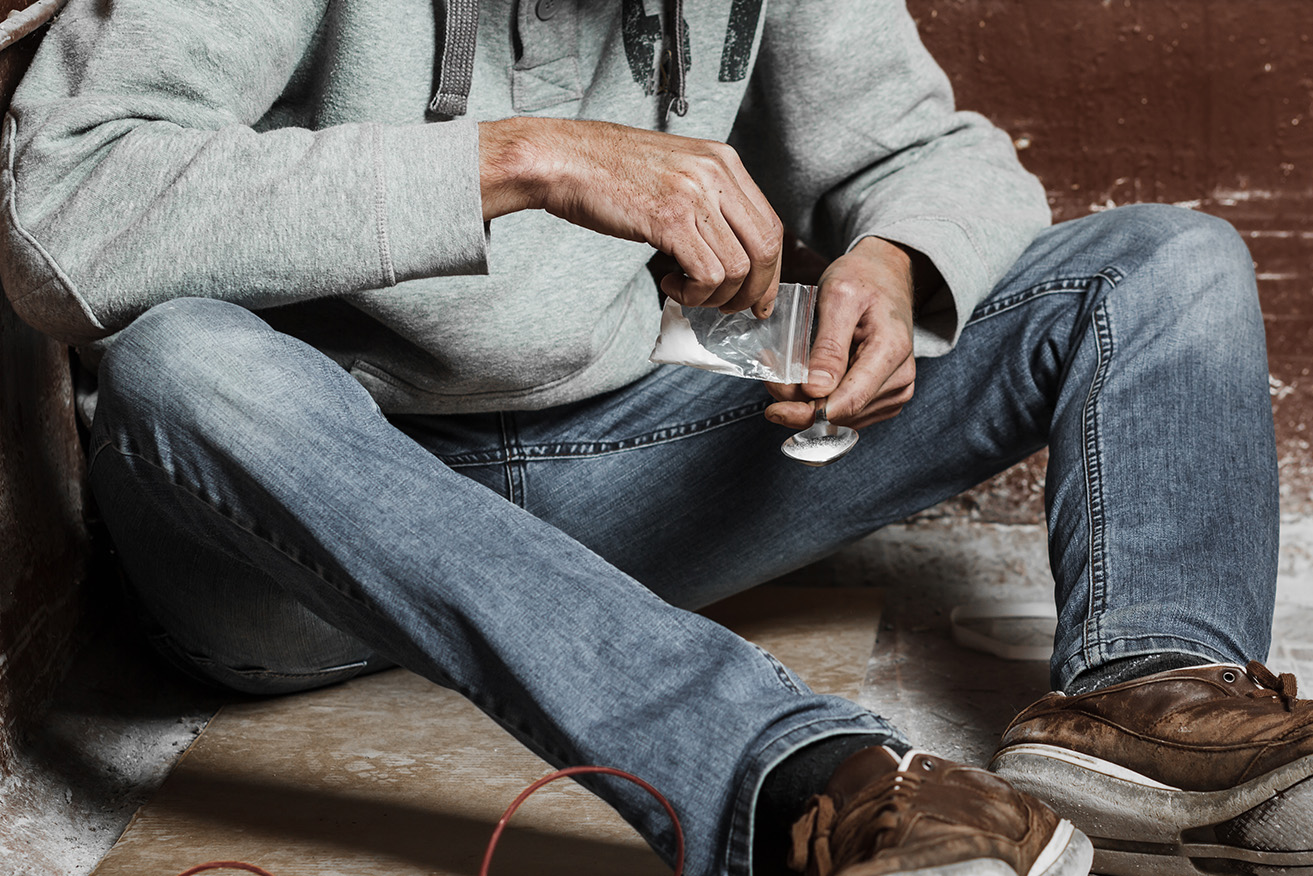Heroin Abuse Treatment Program
Understanding Its Effects and the Urgent Need for Help
Diamorphine, also known as Diacetylmorphine, is more commonly recognized by its street name: heroin. This powerful opioid is highly sought after for the intense euphoric effect it produces in the brain and body. However, heroin’s rapid impact on the central nervous system makes it one of the most dangerously addictive substances.
If you or a loved one is struggling with heroin use, seeking help is not just important—it’s essential. Heroin addiction can escalate quickly, leading to devastating physical, emotional, and social consequences.

It's time to begin your Redemption Story

What Does Heroin Look Like?
Understanding the Forms and Origins of This Powerful Opioid
Heroin comes in several forms, including a brown powder, off-white powder, and a dark brown or black tar-like substance commonly known as black tar heroin. Regardless of its form, heroin is a highly addictive opioid known for its intense pain-relieving effects and the powerful rush of euphoria it produces.
Derived from the opium poppy plant (Papaver somniferum), heroin has been classified as a Schedule I controlled substance for decades due to its high potential for abuse and lack of accepted medical use in the United States.
The Growing Crisis of Heroin Addiction
Highly Addictive. Rapidly Escalating. Life-Altering.
Heroin is one of the fastest-growing abused substances in the United States, with the number of users continuing to rise each year. As a powerful psychoactive opioid, heroin is highly addictive—even first-time use can lead to dependency. It's typically used by smoking, snorting, or injecting the drug, each method carrying serious health risks.
As a respiratory depressant, heroin use significantly increases the risk of overdose and death, especially when combined with other substances like alcohol or benzodiazepines.
Physical Symptoms of Heroin Abuse
What to Watch For
The physical signs of heroin use can vary, but often include:
-
Sudden drowsiness or agitation
-
Slurred speech
-
Constricted (pinpoint) pupils
-
Depression or emotional instability
-
Memory problems or confusion
-
Needle marks (track marks) on arms or legs
-
Runny nose or frequent sniffing (from snorting)
-
Constipation
-
Decreased sensitivity to pain
Behavioral Symptoms of Heroin Abuse
When the Drug Changes the Person
Heroin use often affects behavior as much as the body. Look for:
-
Sudden change in appearance or weight
-
Neglect of personal hygiene
-
Secretive behavior or lying to loved ones
-
Financial problems or unexplained expenses
-
Increased risk-taking or dangerous actions
-
Loss of interest in hobbies, work, or relationships
Heroin Withdrawal: Not Fatal—But Intense
While heroin withdrawals are rarely life-threatening, they are extremely uncomfortable—often described as feeling like the “flu multiplied by 100.” Withdrawal occurs when the body has become physically dependent on the drug, and stopping use disrupts its normal function.
Common symptoms include:
-
Intense cravings
-
Muscle and joint pain
-
Nausea, vomiting, or diarrhea
-
Sweating and chills
-
Insomnia and fatigue
-
Anxiety, irritability, or depression
This painful process is one of the main reasons many people continue using, even when they desperately want to quit.
You Don’t Have to Go Through It Alone
At Redemption Addiction Treatment Center in New Jersey, we provide medically supervised detox and compassionate, structured heroin treatment programs designed to support every step of your recovery.
Call us today at (855) 718-6286 to learn more or speak confidentially with a member of our team.
Insurance verification is fast, free, and easy.
Redmeption Addiction makes getting into treatment easy. Fill out the form below and let us help you take the first step to recovery!
Insurance Verification
"*" indicates required fields
Heroin Withdrawal Symptoms
Recognizing the Signs of Physical Dependence
If you've been using heroin or another opioid, you may begin to experience withdrawal symptoms when the drug leaves your system. These symptoms can begin just hours after the last dose and can feel intense and overwhelming.
Common Symptoms of Heroin Withdrawal:
-
Restlessness or anxiety
-
Muscle and body aches
-
Diarrhea
-
Vomiting
-
Cold flashes (“the chills”)
-
Runny nose
-
Restless legs
If you’re experiencing any of these symptoms, it may be a sign that your body has developed a physical dependence—and that professional help is needed to detox safely.
Heroin Detox
Medical Supervision for a Safer Start to Recovery
Detoxing from heroin should never be done alone. At Redemption Addiction Treatment Center in New Jersey, our medical detox program provides 24/7 supervision and clinical support to help ease withdrawal symptoms and reduce the risk of complications.
There are evidence-based medications available to assist during heroin detox, such as:
-
Benzodiazepines (like Ativan or Librium) for anxiety and agitation
-
Methadone or buprenorphine (Suboxone) to gradually taper opioid use and reduce cravings
Our team monitors your progress every step of the way to ensure comfort, safety, and stability during the detox process.
Heroin Abuse Treatment Program at Redemption
Comprehensive Care Rooted in Compassion and Expertise
Detox is just the first step. After stabilizing, the next phase is entering a structured treatment program that addresses the psychological and behavioral aspects of addiction.
At Redemption Addiction Treatment Center, we offer a Heroin Abuse Treatment Program built on clinically proven methods and customized care. Our experienced team works closely with each client to develop a personalized treatment plan tailored to their goals, challenges, and recovery journey.
Our program includes:
-
Individual and group therapy
-
Relapse prevention education
-
Medication-assisted treatment (if needed)
-
Family and peer support
-
Case management and aftercare planning
We understand that heroin addiction can feel impossible to escape—but you don’t have to face it alone. With the right support, recovery is not only possible—it’s within reach.
Start Your Recovery Today
Call Redemption Addiction Treatment Center at (855) 718-6286 to learn more about our heroin detox and treatment programs. Our team is here to guide you through every step of the recovery process.
Together, we will rise.
